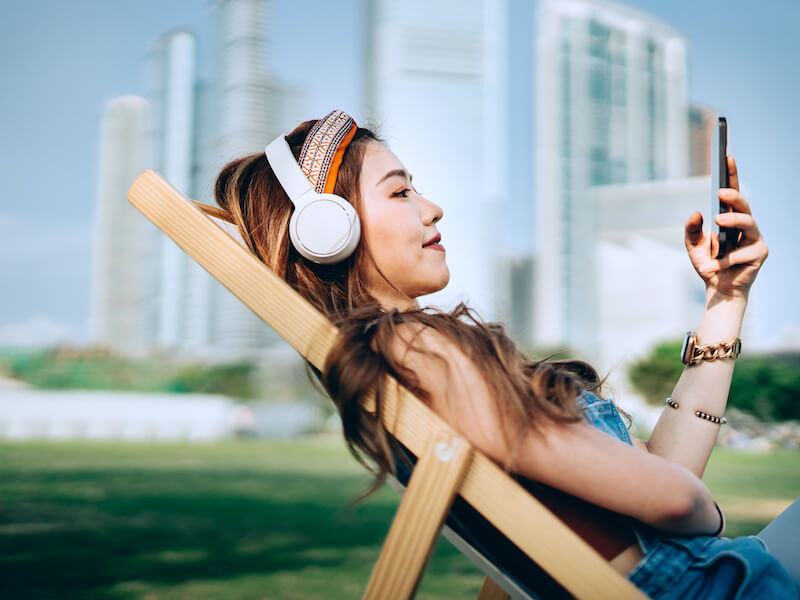
Aiden enjoys music. While he’s out running, he’s listening to Pandora, while working it’s Spotify, and he has a playlist for all his activities: cardio, cooking, video games, you name it. His entire life has a soundtrack and it’s playing on his headphones. But lasting hearing damage might be happening due to the very loud immersive music he enjoys.
As far as your ears are concerned, there are healthy ways to listen to music and unsafe ways to listen to music. Regrettably, most of us pick the more dangerous listening choice.
How can hearing loss be the result of listening to music?
Your ability to hear can be damaged over time by exposure to loud noise. Typically, we think of aging as the principal cause of hearing loss, but more and more research reveals that it’s really the accumulation of noise-related damage that is the issue here and not anything intrinsic to the aging process.
It also turns out that younger ears are particularly vulnerable to noise-induced damage (they’re still developing, after all). And yet, younger adults are more inclined to be dismissive of the long-term dangers of high volume. So because of widespread high volume headphone usage, there has become an epidemic of hearing loss in young individuals.
Is there a safe way to listen to music?
Unregulated max volume is clearly the “hazardous” way to listen to music. But merely turning down the volume is a less dangerous way to listen. The general recommendations for safe volumes are:
- For adults: 40 hours or less of weekly listening on a device and keep the volume below 80dB.
- For teens and young children: 40 hours is still okay but lower the volume to 75dB.
About five hours and forty minutes per day will be about forty hours every week. That seems like a lot, but it can go by fairly rapidly. Even still, most people have a pretty sound idea of keeping track of time, it’s something we’re taught to do effectively from a very young age.
Monitoring volume is a little less intuitive. Volume isn’t gauged in decibels on the majority of smart devices such as TVs, computers, and smartphones. Each device has its own arbitrary scale. Perhaps it’s 1-100. Or it may be 1-10. You might not have a clue how close to max volume you are or even what max volume on your device is.
How can you listen to tunes while monitoring your volume?
There are a few non-intrusive, simple ways to determine just how loud the volume on your music really is, because it’s not very easy for us to conceptualize exactly what 80dB sounds like. Distinguishing 75 from, let’s say, 80 decibels is even more perplexing.
So using one of the numerous noise free monitoring apps is greatly suggested. These apps, widely available for both iPhone and Android devices, will give you real-time readouts on the noises around you. That way you can monitor the dB level of your music in real-time and make alterations. Or, while listening to music, you can also modify your configurations in your smartphone which will efficiently tell you that your volume is too loud.
The volume of a garbage disposal
Generally, 80 dB is about as loud as your garbage disposal or your dishwasher. That’s not too loud. It’s a relevant observation because 80dB is about as loud as your ears can cope with without damage.
So you’ll want to be extra aware of those times at which you’re moving beyond that decibel threshold. If you happen to listen to some music above 80dB, remember to minimize your exposure. Maybe limit loud listening to a song instead of an album.
Listening to music at a higher volume can and will cause you to develop hearing problems over the long term. You can develop hearing loss and tinnitus. The more you can be aware of when your ears are entering the danger zone, the more educated your decision-making will be. And safer listening will ideally be part of those decisions.
Still have questions about safe listening? Give us a call to explore more options.
